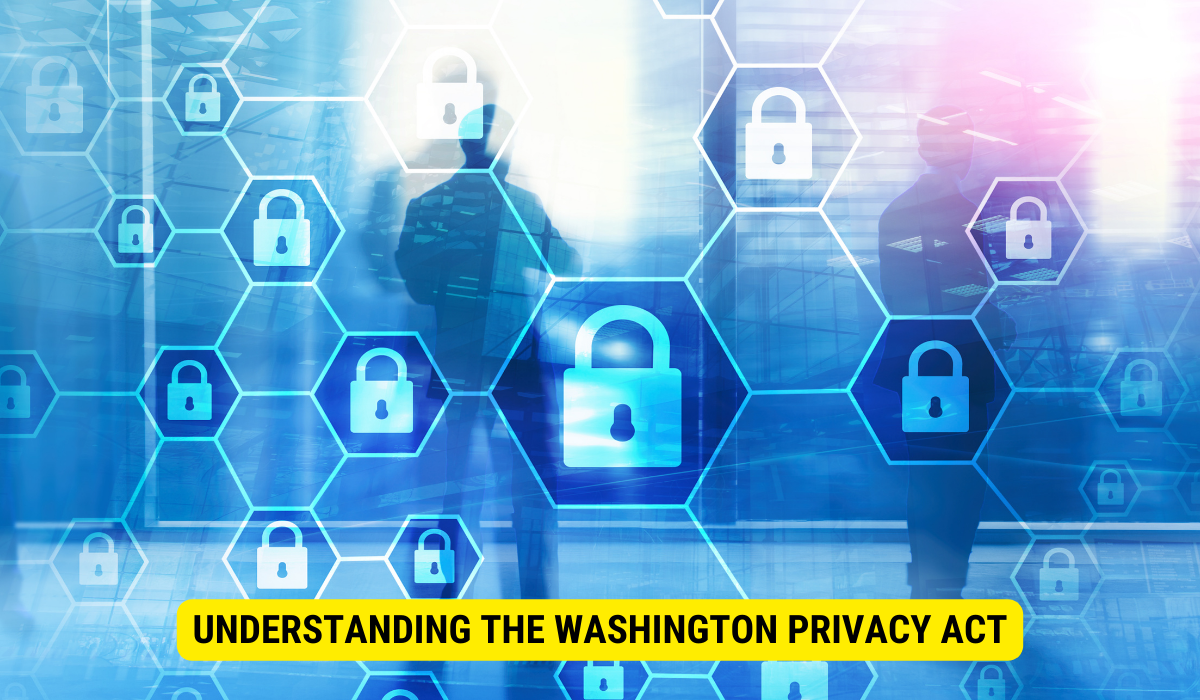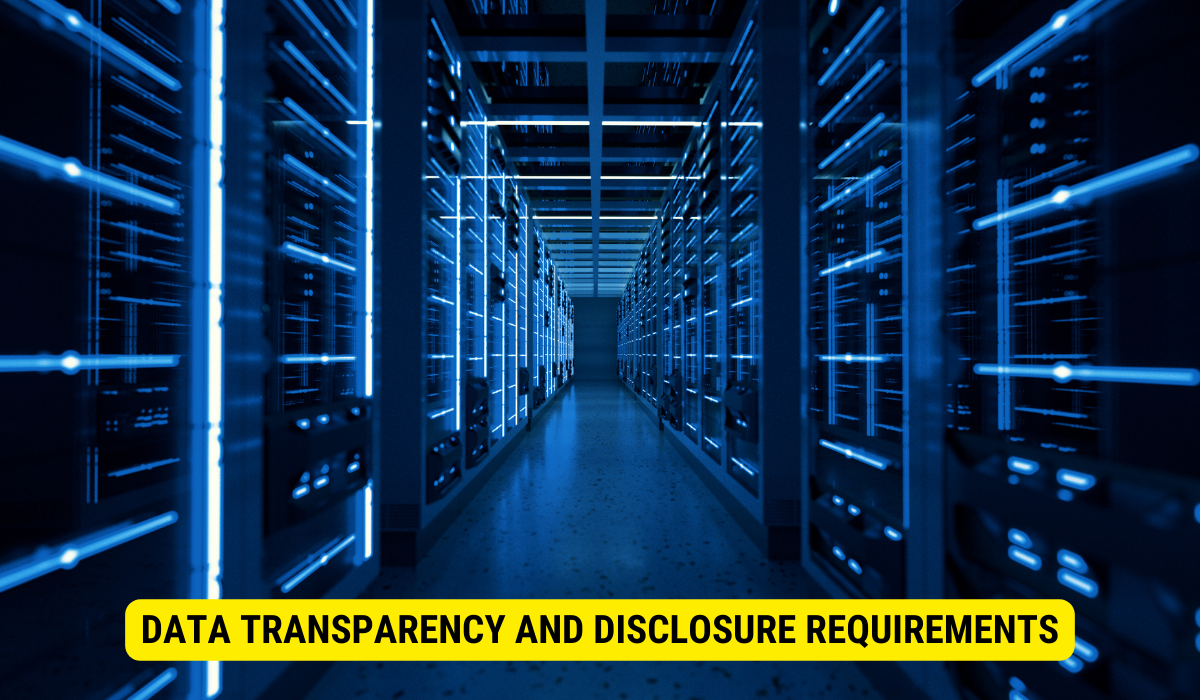Online data is included in the Washington Privacy Act. The Act encompasses various aspects of personal data protection, covering both traditional and online identifiers, such as IP addresses, cookies, and device information.
The Washington Privacy Act is a comprehensive legislation that purposes to protect the privacy of individuals and regulate the use of personal data. In today’s digital age, online data plays a significant role in our everyday lives. This raises the question: is online data included in the Washington Privacy Act?
Understanding the Washington Privacy Act
The Washington Privacy Act is a comprehensive legislation that aims to provide individuals with control over their data, promote transparency in data processing practices, and establish guidelines for businesses operating in Washington State. This Act is crucial in the ever-evolving data privacy and protection landscape.
When it comes to online data, understanding the key provisions and scope of the Washington Privacy Act is essential. This Act covers the collection, use, storage, and sharing of personal data. It seeks to strike a delicate balance among protecting individual privacy rights and fostering innovation in data-driven industries.
The Basics of the Washington Privacy Act
The Washington Privacy Act encompasses various aspects of data privacy, ensuring individuals have a say in handling their personal info. It needs businesses to be transparent about their data practices and obtain valid consent from individuals before collecting their data.
Moreover, this Act limits the purposes for which data can be processed. It aims to prevent businesses from using personal information in ways that individuals did not originally consent to, thereby safeguarding their privacy rights.
In addition, the Washington Privacy Act imposes obligations on businesses to implement adequate security measures to protect personal info from unauthorized access, disclosure, alteration, or destruction. This helps to ensure that individuals’ data is handled with the utmost care and protection.
Key Provisions of the Act
The Washington Privacy Act introduces several key provisions to safeguard personal data and enhance individuals’ control over their information. One of the most significant provisions is the requirement for businesses to obtain valid consent from individuals before collecting their data.
This provision ensures that individuals have the opportunity to make informed decisions about the use of their personal information. It empowers them to choose whether or not they want to share their data and for what specific purposes it can be used.
Furthermore, the Act places limitations on the processing of personal data. Businesses must only process data for the purposes that individuals have consented to or for legitimate business purposes. This provision prevents the misuse of personal information and helps maintain trust between businesses and consumers.
Another crucial provision of the Washington Privacy Act is the requirement for businesses to implement adequate security measures. This includes measures to protect personal information from unauthorized access, such as encryption, access controls, and regular security audits.
By implementing these security measures, businesses can minimize the risk of data breaches and confirm that individuals’ personal information remains confidential and secure.
In conclusion, the Washington Privacy Act is a comprehensive legislation that protects individuals’ privacy rights while fostering innovation in data-driven industries. By understanding its key provisions and scope, businesses and individuals alike can navigate the complex landscape of data privacy and ensure the responsible handling of personal information.
Scope of the Washington Privacy Act
Now that we have a basic understanding of the Washington Privacy Act let’s delve deeper into its scope and determine whether online data falls within its jurisdiction.
The Washington Privacy Act, which aims to protect the privacy of individuals, has a broad scope that covers various aspects of personal data. It defines personal data as any information related to an identified or identifiable individual. This can include traditional identifiers such as names, addresses, and social security numbers, as well as online identifiers like IP addresses, cookies, and device information.
With the increasing reliance on digital platforms and the vast amount of data being collected online, it is crucial to understand how the Washington Privacy Act applies to businesses operating in the state. The Act applies to businesses that conduct business in Washington State or produce products or services targeted at Washington residents.
Therefore, if a business collects or processes online data belonging to Washington residents, it is likely to fall under the scope of the Washington Privacy Act. This means that businesses must be aware of their obligations and take necessary measures to ensure compliance with the Act’s requirements.
By including online identifiers like IP addresses, cookies, and device information within the definition of personal data, the Washington Privacy Act acknowledges the evolving nature of data collection and the importance of protecting individuals’ privacy in the digital age.
It is worth noting that the Act’s scope extends beyond traditional forms of personal data to encompass the vast array of information that can be used to identify individuals online. Recognizing the broad range of data that can be considered personal highlights the Act’s commitment to safeguarding individuals’ privacy rights in an increasingly interconnected world.
Furthermore, the Act’s applicability to businesses conducting business in Washington State or targeting Washington residents reflects the legislative intent to defend the privacy of individuals within the state’s jurisdiction. This ensures that businesses operating in Washington are held accountable for their data group and processing practices, regardless of whether they are physically located within the state.
In conclusion, the Washington Privacy Act’s scope is comprehensive, encompassing both traditional and online identifiers as personal data. It applies to businesses operating in Washington State or targeting Washington residents, emphasizing the importance of protecting individuals’ privacy in the digital era.
Online Data and the Washington Privacy Act
With an understanding of the Act’s scope, let’s delve deeper into how it specifically addresses online data and the protections it provides.
Definition of Online Data
The Washington Privacy Act encompasses online data, recognizing the importance of protecting digital information in today’s interconnected world. Online data refers to any data collected, generated, or processed through online services, websites, applications, or other digital platforms.
Online data is a vast and diverse category that includes personal information such as names, addresses, email addresses, and phone numbers. It also includes more sensitive data like financial information, social security numbers, health records, and browsing history. The Act acknowledges the wide range of online data and aims to safeguard it from unauthorized access, use, or disclosure.
Furthermore, the Act recognizes that online data extends beyond individual users and encompasses data collected from devices, such as Internet of Things (IoT) devices, which are becoming increasingly prevalent daily. These devices generate a wealth of data, including location information, usage patterns, and preferences. The Act ensures that this data is also protected under its provisions.
How the Act Protects Online Data?

The Act sets forth guidelines to protect online data. It requires businesses to provide clear and concise privacy notices, informing individuals about the purpose of data group, the categories of data collected, and the intended use of the data. This transparency empowers individuals to make informed decisions about online sharing of their personal information.
Moreover, the Act establishes the right to access and control one’s online data. Individuals have the right to request access to their online data held by businesses and understand how it is being used. They can also request corrections or deletion of their data if it is inaccurate or no longer necessary for the specified purpose.
Additionally, the Act obligates businesses to implement appropriate security measures to protect online data from unauthorized access, use, or disclosure. This includes employing encryption techniques, firewalls, and other protections to ensure the confidentiality and integrity of the data.
Furthermore, the Act requires businesses to assess their data processing practices regularly and implement privacy-by-design principles. Privacy considerations must be integrated into developing online services and platforms from the outset rather than being an afterthought.
By incorporating these protective measures, the Washington Privacy Act aims to create a safer and more secure online environment for individuals, fostering trust and confidence in the digital ecosystem.
Rights of Consumers Under the Act
Now that we understand how the Act addresses online data let’s focus on the rights it provides to consumers.
Access to Personal Data
Under the Washington Privacy Act, individuals have the right to request access to their personal data held by businesses. This allows individuals to review the information collected about them and ensure its accuracy and lawfulness.
Correction and Deletion Rights
In addition to access rights, the Act allows individuals to request corrections to their personal data if it is inaccurate or incomplete. Furthermore, individuals can request the deletion of their data if it is no longer necessary for the purpose for which it was collected or if consent is withdrawn.
Obligations of Businesses Under the Act
While individuals enjoy certain rights under the Act, businesses must also ensure compliance and protect personal data.
Data Transparency and Disclosure Requirements
The Act requires businesses to be transparent about data collection and processing practices. This includes providing clear and concise privacy notices detailing the purpose of data collection, the categories of data collected, and the identity of any third parties with whom the data may be shared.
Penalties for Non-Compliance
Non-compliance with the Washington Privacy Act can result in significant penalties for businesses. If a business fails to implement appropriate security measures, obtain valid consent, or respond to consumer requests within the specified timelines, it may face fines and other enforcement actions.
As such, online data is indeed included in the Washington Privacy Act. By recognizing the importance of protecting personal information in the digital realm and providing individuals with rights and businesses with obligations, the Act strives to create a safer and more secure online atmosphere for everyone.
Key Takeaways
- The Washington Privacy Act aims to provide individuals with control over their data, promoting transparency in data processing practices.
- Online data, which includes data collected through online services, websites, and applications, falls within the scope of the Act.
- The Act ensures that individuals have rights to their data, including accessing it, making corrections, and requesting deletions.
- Businesses operating in Washington State have obligations under the Act, such as providing privacy notices and ensuring robust data protection measures.
- Non-compliance with the Act can lead to significant penalties for businesses.
FAQs
What is the Washington Privacy Act?
The Washington Privacy Act is legislation aiming to protect individuals’ privacy rights by regulating the use, collection, and sharing of personal data by businesses operating in Washington State.
Does the Washington Privacy Act cover only physical or online data?
The Act covers traditional and online data, including identifiers like IP addresses, cookies, and device information.
What rights do individuals have under the Washington Privacy Act regarding online data?
Individuals have the right to access their data, request corrections, and even deletion of their data if it’s inaccurate or unnecessary.
Are businesses obligated to inform individuals about their data collection practices?
Yes, businesses must provide clear privacy notices detailing the resolution of data collection, the categories of data collected, and any third-party sharing.
What penalties can businesses face for non-compliance with the Act?
Businesses may face significant penalties, including fines, for failing to comply with the Act’s provisions.
Conclusion
The Washington Privacy Act is a pivotal legislation aiming to protect individuals’ data in an increasingly digital world. Covering both traditional and online data, it establishes clear rights for individuals and obligations for businesses, striving to create a more secure digital environment in Washington State.
